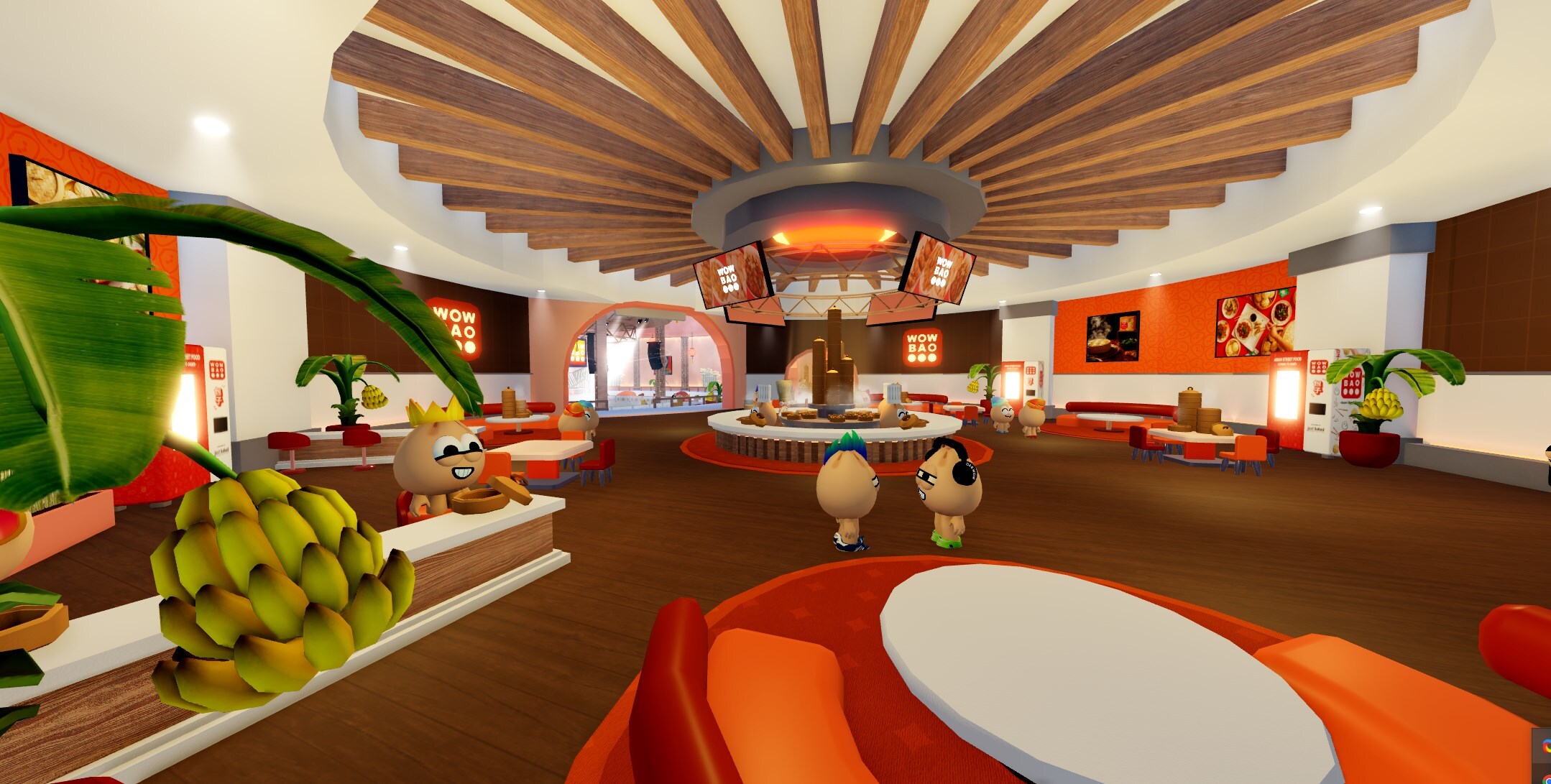Is gamification in the metaverse poised to become the next frontier for restaurants to attract consumers?
Paul Barron, CEO of Rever Networks, a blockchain and Web3 consulting service, thinks yes. He sees it as “the next evolution of what we know as a loyalty system right now.”
The metaverse is a three-dimensional virtual environment where multiple users interact across digital platforms, enabling activities like shopping, gaming, and socializing in real-time. Gamification for restaurants involves gamers earning digital rewards that translate into tangible benefits in the physical world.
Barron says the sector poses an opportunity for restaurants to not only boost loyalty, but brand awareness. And some of the biggest brands are trying it out.

Paul Barron, CEO Rever Networks
“The restaurant industry is really an interesting sector because it has what I think is the holy grail of consumer interaction,” said Barron.
Barron gives the example of McDonald’s, which recently debuted a metaverse world called “My Happy Place” in Singapore on its app—allowing consumers to play games such as building virtual burgers, and earn real-life food deals and prizes. It also offers special perks to people who own an official Grimace NFT launched in 2022.
While the initial frenzy around NFTs may have cooled off from its peak in 2021, the market is still seen as an option for brands to reach new audiences. However, some have pulled out.
Starbucks shuttered its Web3 NFT rewards program with Odyssey in March. The coffee chain did not provide an exact reason but stated in a release that it ended to ‘focus on the program’s future and bring experiences to a broader audience.’
“I think their biggest mistake was they did not integrate the program Odyssey into their best application that was out there in terms of just ordering and loyalty. It was a huge mistake on Starbucks part because it broke a bond between them and with one of the most important demographics, which is Gen Z and Gen A,” said Barron.
Meanwhile, Asian fast-casual Wow Bao continues to invest in the metaverse by launching within Roblox, a popular gaming platform.

Geoff Alexander, CEO Wow Bao
The experience allows consumers to hang out in a virtual dance club and lounge, participate in a scavenger hunt to win a free box of bao at their local grocery store, and be entered to win free bao for a year. Users can also claim one of the 10,000 bao bun head accessories for their avatar and link their account with the brand’s Hot Buns Club rewards program.
Wow Bao CEO Geoff Alexander says the goal is to attract the 72 million users who regularly play on Roblox.
“We want to be where all of our customer bases are, and more and more people are on gaming platforms. It’s an entire customer base that has not been tapped into and most brands are not interacting with,” said Alexander.
Teaming with Roblox is just the latest move for the restaurant brand in the digital world. In 2023, Wow Bao began minting its first NFT’s, called “CollectaBaos.” Fans who purchase the NFTs will automatically be enrolled in its rewards program and receive discounts and chances to win free meals.
Alexander says it plans to continue to enhance its virtual gaming platform moving forward.
“The biggest win, of being in this environment, is being an early adopter,” said Alexander.

Wow Bao’s Dim Sum Palace lounge on Roblox.
In-game food ordering
Going a step further, Devour, a Web3 food ordering and engagement startup, wants in-game ordering of food delivery to become a reality.
Devour works to power experiences where consumers can play games, earn rewards and utilize them to order food. It also helps restaurants boost their digital dining experience through integrating promotions and crypto payments on platforms and apps such as Discord, Telegram and Twitch. CEO Shelly Rupel describes the strategy.
“I’m playing a game, I’m hungry…being able to go ahead with rewards that I’ve earned in the game, pick a merchant or restaurants that I want to order from, place that order and then get back to my gaming,” she said.
Rupel shares the example of Chipotle’s Roblox video game, where consumers can roll burritos. “Imagine that you’re able to go from not just the gaming experience but to, ‘Hey, I’ve done this experience and I want to order my virtual twin of that and have it delivered to me,” said Rupel.

Shelly Rupel, CEO Devour
“So rather than competing for market share that we see happen with third or first party ordering on the mobile device, we’re looking at it as go meet the consumer where they are, then take our restaurant partners and merchant brands with us,” said Rupel.
While dipping toes into the metaverse may seem far off for some restaurant brands, it’s clear there is potential for this concept to become more common in the future. There are, in fact, 212 million people in the U.S. who play video games at least once a week.
“Think of it this way, if you were a restaurant operator in 2007, and you didn’t launch a social media account, where were you five years later? It’s the same model. Or if you were a restaurant brand 15 years ago and you didn’t launch an app, where were you five years later?” asked Barron. “Behind on the curve.”
“That’s the kind of impact digital loyalty systems will have, especially Web3-based products in the future.”


